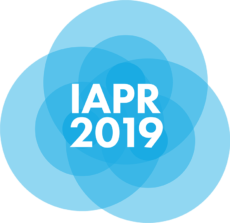4
About IAPR
IAPR is the oldest formally existing organization in the psychology of religion worldwide and one of the very few in the international fields of psychology, theology and sciences of religion to have its past extensively contextually investigated. Published on the completion of IAPR’s first century (2015), a monograph on IAPR’s history (Religionspsychologie) was itself critically discussed in a special supplement to the Archive in 2016.
The International Association for the Psychology of Religion (IAPR) is an international organization promoting scientific research and exchange within the field of the psychology of religion. The Association is not partial to any particular trend but aspires to provide a platform for the entire spectrum of the scientific-psychological study of religion for psychologists of religion from all over the world.
The International Association for the Psychology of Religion (IAPR) has European roots. The Association was founded in 1914 in Nuremberg, Germany, as “Internationale Gesellschaft für Religionspsychologie” and published in that same year the first volume of the “Archiv für Religionspsychologie” (now Archive for the Psychology of Religion). Already at this early stage, a number of international scholars, including some from the USA, belonged to the board of both the association and the journal, while the key figure of the enterprise was Wilhelm Stählin (1883‐1975), a German protestant minister. As Germany went to war during 1914‐1918, the interior situation of the country changed dramatically and a next volume (No. 2/3) of the Archiv was not published until 1921, to be followed by a Volume in 1929.
Stählin, in 1927 handed over both the Association and the Archiv to Werner Gruehn (1887‐1961), a Lutheran pastor from the Baltic countries, who in later years became a professor of theology at Berlin. Before the war, Gruehn managed to publish two more volumes of the Archiv (no. 5 and 6). But then things definitively went wrong: in 1945, Gruehn had to flee from Berlin, lost his professorial position, and needed to live on a moderate pension in a small town in Germany. In fact, the Association and the Archiv were extinct. In the fifties, Gruehn tried to organize an international congress to revive the Association, but failed.
At the beginning of the 1960s, Wilhelm Keilbach (1908‐1982), a professor of Roman Catholic systematic theology who had a strong interest in history of religions, expressed the wish to reactivate the Association. He organized some ‘Tagungen’, small conferences, to which only a limited number of people were invited, essentially pre‐war students and friends of Gruehn, and Keilbach’s own priest‐students. The papers read at the conferences were printed in the irregularly published Archiv, which now functioned in this way, more as proceedings than as a journal.
Although people like André Godin, Antoine Vergote and especially Hjalmar Sundén published some articles in the Archiv, the Association after some years ended in a cul‐de‐sac again. There were only a few professional psychologists involved, most attendees of the conferences had limited training in psychology during their pre‐war education as theologians. No efforts were made to broaden up, to professionalize or to modernize the Association’s perspective or style.
When the Board even opposed all forms of modernization, this unfortunate development eventually led to the formation of a new, more progressive and active group, the European Psychologists of Religion. Nils Holm, a historian and psychologist of religion from Finland, who was chosen as its new President in 1995, managed to persuade the ‘old’ majority within the Board to take in some new persons at a conference he organized in Denmark, 1998. Together with the small number of psychologists of religion already on the Board, these new members were committed to a reorganization of this Europe‐based Association, in order to turn it into a scholarly, democratic, and confessionally as well as religiously neutral international platform for the psychology of religion.

Please visit the IAPR homepage www.iaprweb.org










